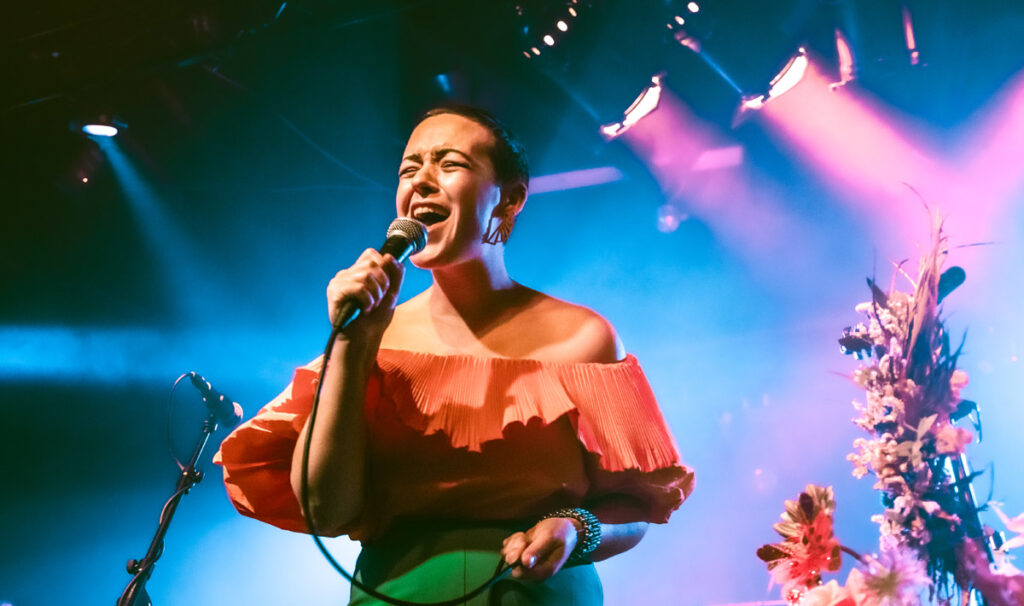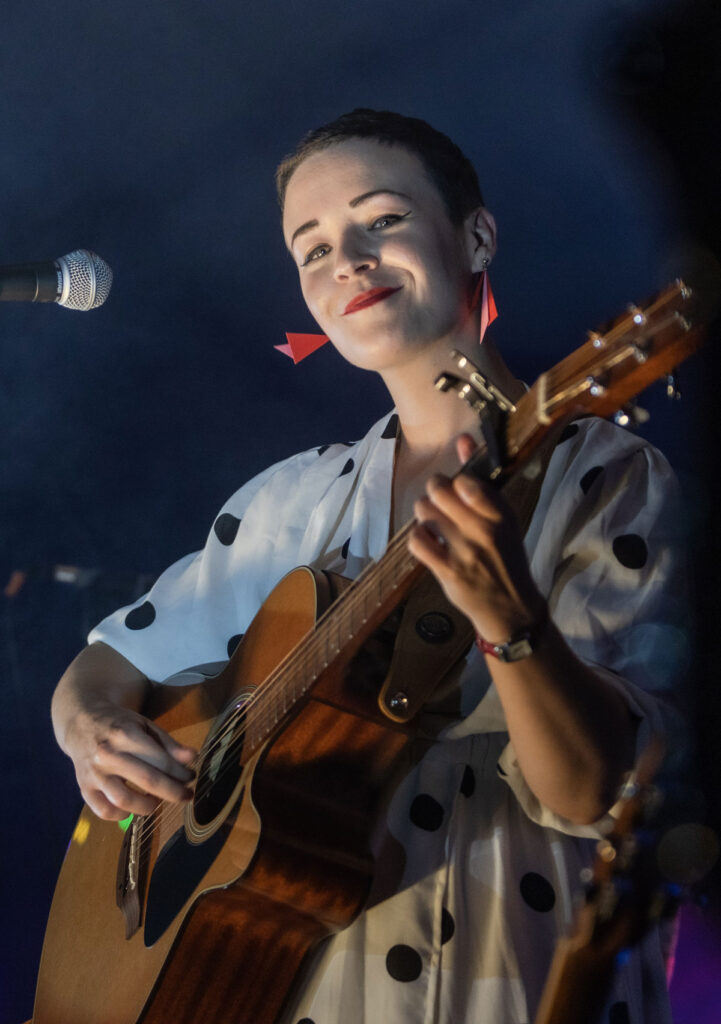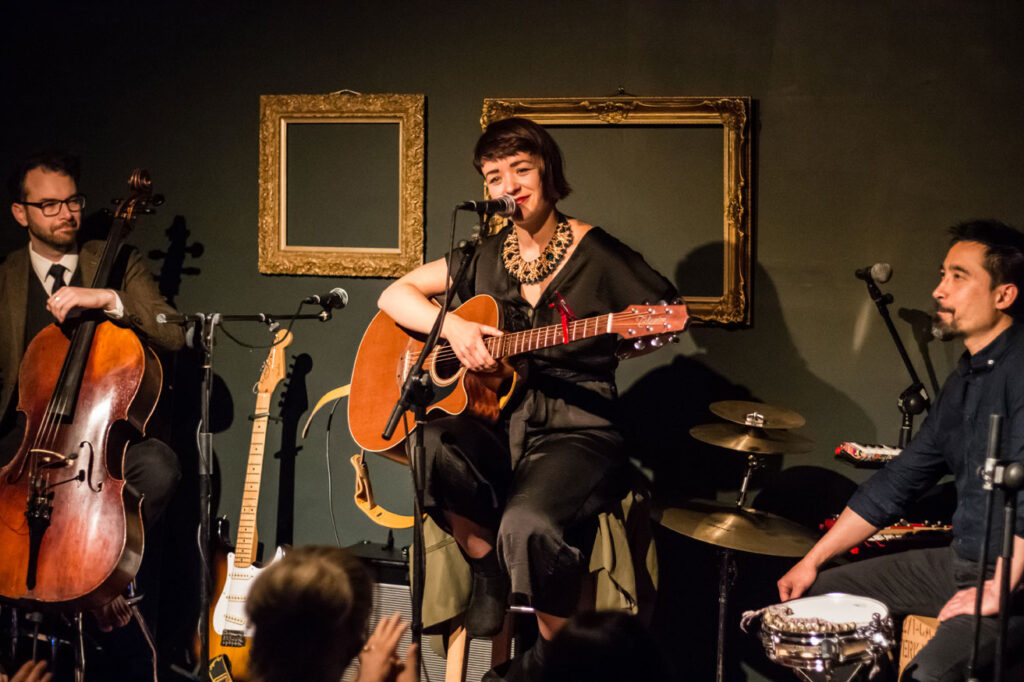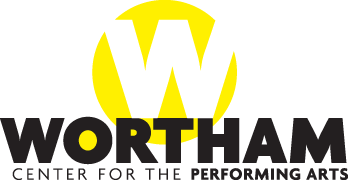Hailing from Limerick City, Ireland, Emma Langford and her inimitable, dreamy voice are at the frontline of a new wave of Irish folk — with songs imbued with all the humor, vibrant imagery and drama of the rugged west coast of Ireland.
Storytelling sits at the heart of everything this songwriter does — interweaving her live performances and shining through her works. Following the release of her debut album, Quiet Giant, in 2017, Emma was awarded the RTÉ Radio 1 Folk Award for Best Emerging Artist, and she has since been twice nominated by the national broadcaster for Best Folk Singer. In 2019, she became the first-ever recipient of the Dolores O’Riordan Bursary, an award created in memory of the late singer from Limerick to promote creative arts projects in the city. And in 2021, she received the Music Network RESONATE residency and the Arts Council of Ireland Agility Award to support a continuing musical exploration of women in Irish history.

Emma has been called “a treasure in Ireland’s music scene” by The Irish Times, “impressive, arresting and defiant” by The Irish Independent and “one of the more exciting and radical Irish talents of the moment” by Irish Music Magazine. Folk singer-songwriter Janis Ian even praised the up-and-coming talent, saying: “I absolutely love her music and the way she thinks. She’s someone I hope to work with myself one day.”
The Wortham Center recently had the pleasure of speaking with Emma ahead of her highly anticipated Asheville performance — set for 8 p.m. Friday, Jan. 12 on the Diana Wortham Theatre stage — to learn a bit more about her artistic influences of all genres and mediums and her success as a rising star in the music industry.
Tell me a little about yourself and your music: When did you start singing/performing, what drew you to music as a career from there, and what has that journey been like for you?
Emma: This is definitely one of the toughest questions to be asked. I feel like every time I answer it I give wildly different answers. I’m an ever-metamorphosing weird little guy.
But in brief, I’m from a city in the southwest of Ireland called Limerick, hometown of the Cranberries and Richard Harris, and I’m fiercely proud of the place. It gets a bad rap and is a bit of an underdog, but it’s a beautiful, vibrant, creative place full of wonderful scrappy people. It’s made me who I am, and my community here are why I’m still working in music 10 years from when I started out.

My folks always supported my creative strain and put me into stage school and drama classes from a young age. I started out playing in cafes and bars while I finished my undergrad in performance, back in 2013. I was heavily influenced by my parents’ musical taste, so there was a lot of ABBA, The Beatles, musical theatre, Norah Jones, Katie Melua and Eva Cassidy in my songbook.
I started performing my own music at open mics, and opening shows for songwriting and folk legends like Ron Sexsmith, John Smith, Sam Amidon, Maxwell Jury and Eddi Reader — watching them work their magic taught me so much about stagecraft and music-making.
I’ve never been drawn to music as a career as such; I’ve just never really been anything but a creative and a storyteller. I’ve learned that calling myself a “musician” as such can feel wrong. It makes me feel like I’m being squeezed into jeans that don’t fit me. I can’t help pouring out in all directions. So I prefer to say that my career is in being a creative stuff-maker and storyteller. Folks will understand what I mean by that when they come to my show.
Was there a moment in your life where music just “clicked” as something you wanted to pursue?
Emma: I left school in 2008 and traveled the world doing all kinds of things. I’d been accepted onto an undergrad program in performance back home, but wasn’t sure it was really what I wanted to do. So I traveled and tried other things and realized in the process that music was calling to me, so I moved home and did my degree. I just trusted my gut on it. And I was right.
Who have been some of your greatest influences as a singer-songwriter?
Emma: I’m influenced by a lot of contemporary Irish artists like Wallis Bird, Sinéad O’Connor, Dolores O’Riordan; some of the men too! Like Declan O’Rourke, Duke Special and Neil Hannon, aka The Divine Comedy. My other influences would be Scottish artist KT Tunstall, English artist Laura Marling, and the likes of Joni Mitchell, Janis Ian and Josh Ritter. All sensational storytellers.
What kind of influence has your hometown or home region had on your music? What’s the music scene there like, and how has that shaped you as a musician?
Emma: Limerick has had a huge impact on me personally, which in turn has impacted my music-making. It has this wild, untamed and untameable spirit; it’s eclectic and unpredictable, and so welcoming to everyone of all genres and all styles. I do find myself surrounded more so by visual artists, authors and poets than musicians, which might seem odd, but I love other forms of creativity so much. They inspire me to write songs and make music, and to think outside of my usual musical box in terms of how I tell a story. Limerick is home to the mighty river Shannon, which is full of mythology and folklore, but it’s also just a great big gorgeous body of water, and many of my songs have wound up being about the sea, water and a draw to it.
How has your music shifted or evolved over time? What were your early days as a musician like, and how do you feel you’ve grown since?
Emma: I spent a lot of my early career trying to be, sound like or write like other people. It took me a long time to find my own voice. Maybe I still haven’t? I like to think I’m always growing, learning and changing, and that’s a beautiful thing. I’ve definitely become a better and more confident writer and guitarist over time — but I guess that’s inevitable.
Tell me about all the awards you’ve won and been nominated for. How does that feel to receive such affirmations that you’ve chosen the right path?
Emma: I was nominated over the years for various accolades and awards. It meant the world to receive the RTÉ Folk Award in 2018 because it was recognition from Ireland’s national broadcaster and from a jury of my peers at a time when I was still constantly second-guessing myself and whether I had any right to be in this career. I finally felt like I had a seat at the table, and it can be hard to get to that place. In 2019 when I received the inaugural Dolores O’Riordan Bursary, it felt like a little nod from her that I was on the right path. I don’t truly believe that music-making should be a competition, but at that time it was so important for me to know I was part of this world.

Is there a song, an album, a performance or an award that you’re the most proud of — or one that you feel you put the most heart and soul into?
Emma: I have a bunch of new songs all about women in Irish history and folklore that I really love, that I’m still developing and expanding because there’s really no end to these little-known stories and I love telling them. I’ve poured a lot into these songs, and I’m really proud of how that body of work is developing. I can’t wait to put together a full album of all of them.
Can you tell me a bit about your most recent musical endeavor (whether it’s your most recent release or something still in-progress)? What has the creative process been like?
Emma: Most recently I spent some time at a songwriting camp in Balbriggan in Dublin, which was guided by some incredible mentors who have written for Jennifer Lopez, Craig David, Weezer, Ariana Grande — loads more. As you can possibly tell, I was way outside my comfort zone among pop songwriters, but I learned that a songwriter is a songwriter. I was buddied up with two other camp-attendees, and we created the most beautiful, haunting, heart-breaking piece of music about a relationship in disrepair as represented through a neglected and derelict house. I’m excited to share that one with the world if and when we ever get around to recording it. Keep an eye out for “Ghosts!”
Tell me a little about your live performances. What are some of the things you hope audiences take away from your shows?
Emma: They’re a little bit of comedy, a little bit of personal storytelling, a little bit of Irish culture and mythology, and of course there are quite a few songs. If you don’t like songs, this might not be the show for you. Fair warning.
I love when people come away from my shows with a new understanding of Irish identity and culture, of our history, our language and mythology. But the best thing of all is any of my songs or stories can give someone a better understanding of themselves. People don’t really usually love songs because of the story behind them, but rather because of the mirror they hold up. I hope the folks in Asheville like my mirror.
Have you been to Asheville before? Is there anything you’re excited to do or experience while visiting?
Emma: Never, and I’ve heard so many amazing things about the music scene there, and about some great bars and cafes. I love finding a good local cafe and just wandering around brand new streets. My pals in the U.S. keep sending me links to places I need to try, like Battery Park Book Exchange and all the gorgeous breweries, so I’m going to be kept busy!
Anything else you’d like to mention that we haven’t covered yet?
Emma: I’m vegetarian! There. I said it. My current hobbies are drinking whiskey and coffee, petting dogs, weight-lifting, and knitting. I’d like to get back into painting in 2024. I was really good at it once upon a time. I miss it. That’s all! Thank you for reading!

